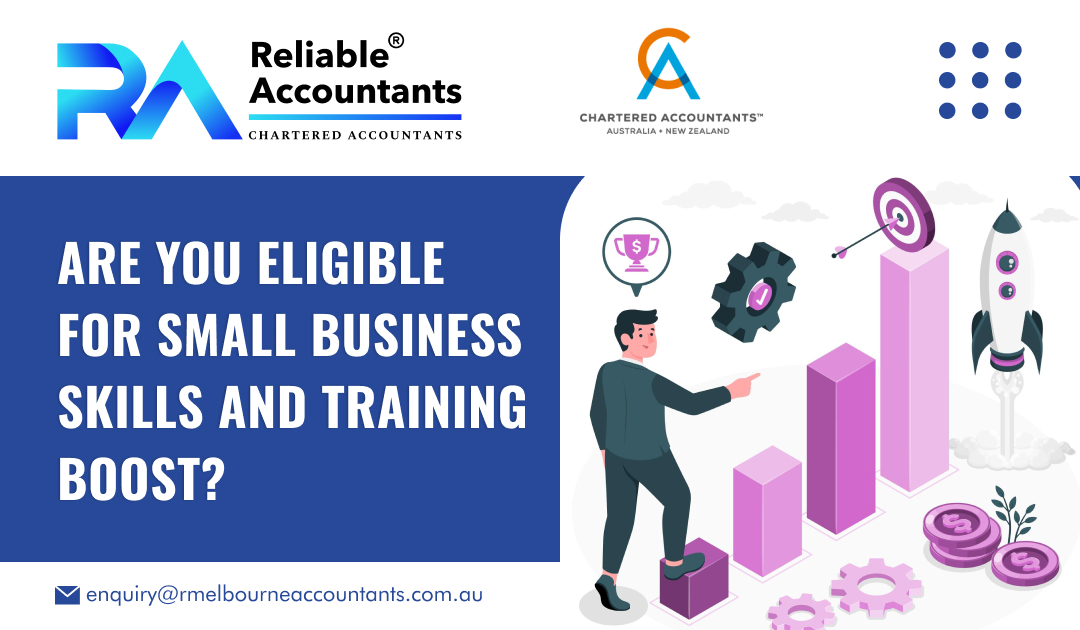Are you paying for your employees’ external training? If yes, then you might qualify to claim the skills and training boost. Does your business have a total turnover of less than $50 million? You might be eligible for the small business skills and training boost. The boost will allow you an additional 20% bonus tax deduction for eligible expenses incurred on training new and old employees.
If eligible, you are allowed to claim a deduction on expenses for external training courses provided to your employees, either online or in-person in Australia. The training should be given by a registered external training provider.
Eligibility for Claiming Small Business Skills and Training Boost
To claim the small business skills and training boost, your business must meet the standard total annual turnover rules. The expenses must be:
- for the providing training to business employees, either online or in-person in Australia
- charged by a registered external training provider indirectly or directly, which is not you or an associate of yours
- already deductible under tax law for your business
- incurred within a particular time duration
What You Can Claim?
The bonus deduction can be accessed for expenses for providing training to one or more employees of your company. The training provider needs to satisfy certain registration requirements for the bonus deduction. Training expenses can include incidental expenses related to providing the training, they are charged by the registered training provider, such as equipment or cost of the books required for the course. You can seek help from a tax agent in Melbourne to claim possible tax deductions.
If your business is GST registered and you are paying for training that is not GST-free, the bonus deduction will be calculated on the amount that doesn’t include GST as well as any GST that you cannot claim as a credit for carrying on your business.
For deductions that are claimed over time, such as capital deductions, the bonus deduction will be calculated as 20% of the total amount of eligible expenditure. You can claim this deduction upfront in the first year in which it is available. It is important to note that there may be some fringe benefits tax (FBT) consequences associated with the expenditure you incur.
What You Can’t Claim?
You can’t claim expenses for:
- training of non-employee business owners such as independent contractors, partners in a partnership, or sole traders
- expenditures added on an invoice by an intermediary on top of the cost of training, such as fees or commissions, are not charged indirectly or directly by the registered training provider.
When You Can Claim?
Generally, you can claim a deduction in the year the expenditures are incurred. Under the delayed claim rule, you can claim a deduction for qualified expenses in your tax return for the income year in which the expenses were incurred and you can claim the 20% bonus deduction in a later year’s tax return. It depends on:
- at what time during your income year your expenses incurred
- when your income year runs, so whether your business is normal, early or late balancer
Should You Invest?
Are you thinking about upskilling your employees? The boost is accessible until 30 June, so you have enough time. You are not allowed to claim expenses for training you undertake yourself as a business owner, such as where you are a partner in a partnership, sole trader, or independent contractor. Moreover, you can also ask a small business tax accountant if you have any doubts regarding any type of tax deductions.
Conclusion
Now that you know whether you are eligible for small business skills and training boost. However, if you still have queries about what tax deductions you can claim and how you can claim, then you can reach Reliable Melbourne Accountants.

